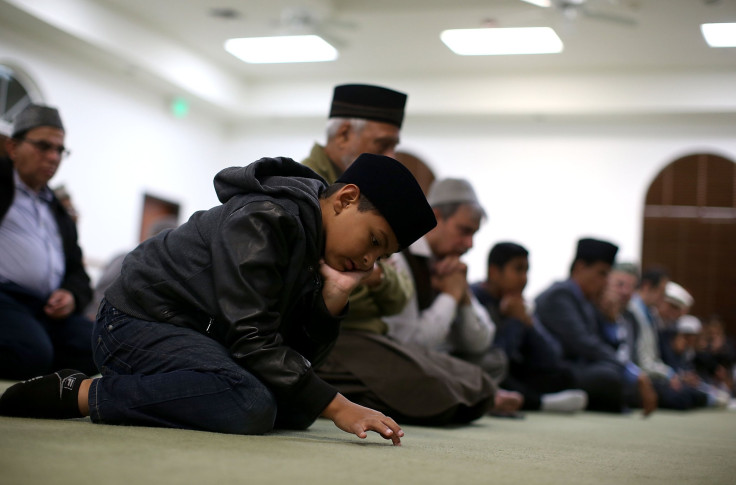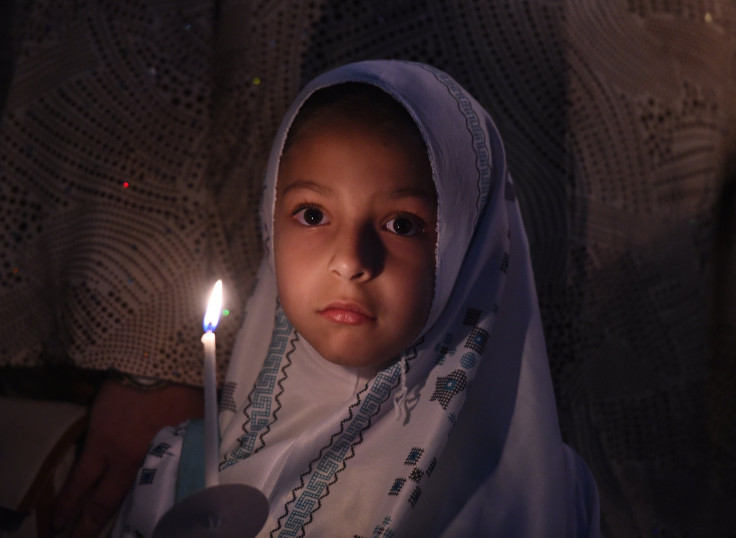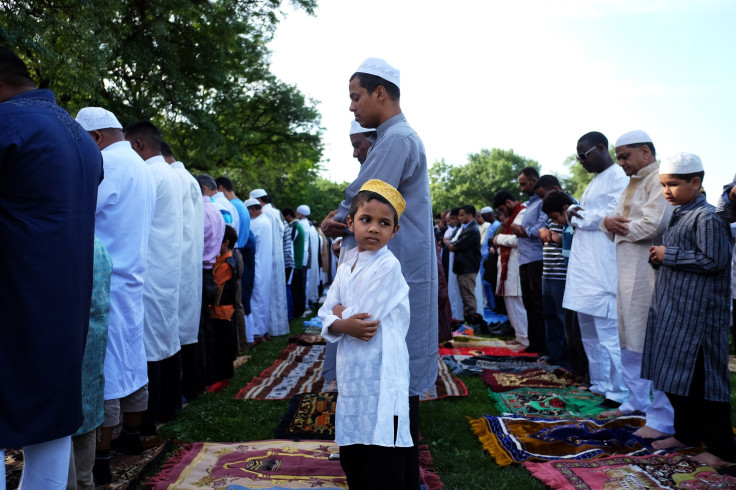How Muslim Parents Discuss Extremism And Anti-Islam Backlash With Their Kids

The surge of anti-Muslim sentiment that unfolded in the wake of the attacks in Paris and San Bernardino, California, has been especially difficult for Muslim-American children. In Atlanta, a 13-year-old girl who wears a hijab was asked by a teacher whether she was carrying a bomb in her book bag. In the Bronx, a Muslim sixth-grader was taunted with names like “ISIS” while a group of boys allegedly tore off her hijab. And Muslim parents across the country have reported anecdotal incidents of bullying because their kids are “different.”
So how do parents talk about these incidents with their children? How do they address issues not just of extremism and violence in the name of Islam, but also hate crimes and violence against Muslims? Those are the questions the Council on American-Islamic Relations, or CAIR, wanted to answer with a new resource booklet for parents called “A Muslim parent’s guide to talking to children about acts of violent extremism.”
“In that last couple of months, starting with the Paris attacks, the place that Muslims have in this society has really been questioned. And we recognized that some parents were having difficulty in what they say when their kid comes to you, is afraid of being deported, is bullied,” said Corey Saylor, a director at CAIR who shepherded the effort to create the guidelines. “We recognized that we had to provide the community with something simple and straightforward.”
Authored by Aliya Saeed, a clinical psychiatrist, the guide offers basic recommendations for parents of children of all ages and emphasizes the need for parents to monitor the kinds of media they consume and model positive behavior for their kids.
“Evaluate your own use of media,” Saeed writes in the guide. “Are you watching the news and sometimes yelling at the TV when a politician makes an outlandish comment about Muslims? Limit your own consumption of the news and social media if it is affecting you negatively.”
It’s a cursory examination of a complex issue, but it’s a good start for parents who may feel they have little community support.
Kids Sense Adult Stress
Sabina Khan-Ibarra, a 37-year-old Muslim mother of two young children from Half Moon Bay, California, says that even though her children are just 3 and 2, she has noticed that what she consumes has an impact on her kids.
“When I’m stressed, they know it. A few months ago, when a lot of things were happening, I’d be on the internet, watching clips, talking about this stuff with my husband. My kids were reacting to my stress by acting out in other ways,” she said.
Khan-Ibarra, who grew up in California, is worried about the challenges her children will face growing up.
“When we were younger, people did make comments when they saw my mom wearing a shalwar kameez [traditional Pakistani dress]. But it was more out of not knowing. Now, it’s not that they don’t know us, it’s that they have a preconception in their mind — if they dress this way, they must think this way. I wonder how that will affect them growing up,” said Khan-Ibarra.
CAIR’s guide also emphasizes that “facts help us maintain a realistic perspective” and that parents should educate themselves and share age-appropriate information about terrorist incidents and backlash with their children.

Deonna Kelli Sayed, a 42-year-old mother from Greensboro, North Carolina, says she uses acts of extremist violence in the news as a way to discuss with her 13-year-old son, Ibrahim, the meaning of their faith.
“It gives us an opportunity to talk about Islam and how to be a Muslim in today’s society,” said Sayed. “I get into a lot of nuances with him. We specifically talk about the things in Islam that focus on compassion and mercy.”
She says her son was taunted by a classmate who shouted “Allahu Akbar” at him to embarrass him. But instead of responding negatively, Ibrahim simply said to his classmate, “You’re pronouncing that wrong.”
Sayed says that because she has such open communication with her son, he has developed a sense of confidence that equips him to deal with negative comments and what she calls microaggressions with humor.
Kalia Abiade, a 35-year-old from Chicago who is raising three children with her husband, adds that she tries to discuss all sorts of social justice issues, not just anti-Muslim bigotry, with her kids. That’s echoed in CAIR’s booklet, which urges parents to educate children about the civil rights of other communities.
That comes naturally in Abiade's black Muslim family. “We tell them that the bias and bigotry Muslims are facing right now has also been perpetrated against a lot of other groups in this country,” she said.
Answering Tough Questions
Contextualizing issues, says Abiade, is important for children. When her 9-year-old son watched a video about the Sept. 11 attacks in his fourth-grade class, he came home asking Abiade why Muslims would do such horrible things.
“We talked about how there are good and bad people, and how Muslims are no different. People do good and bad things, and we try not to categorize entire groups of people because of them,” said Abiade. “It’s similar to the issue of police violence here in Chicago. We tell our kids there are really good police who fulfill their responsibilities, but there are a few who don’t.”

Other guidelines offered by CAIR include listening to children without forcing them into certain conversations, taking their fears seriously, and encouraging them to engage in positive ways in society.
Ayesha Mattu, a writer from San Francisco, says that’s exactly what she’s doing with her 5-year-old son. While he’s too young to understand what’s happening in the world, he’s not too young to learn to give back.
“Right now my focus is on nurturing a sense of love being Muslim and self confidence in that,” she said. “He packs lunches for the homeless in San Francisco and always makes sure to include dessert. Service, love, joy and beauty all rolled up into one. The essence of being Muslim.”
© Copyright IBTimes 2024. All rights reserved.











